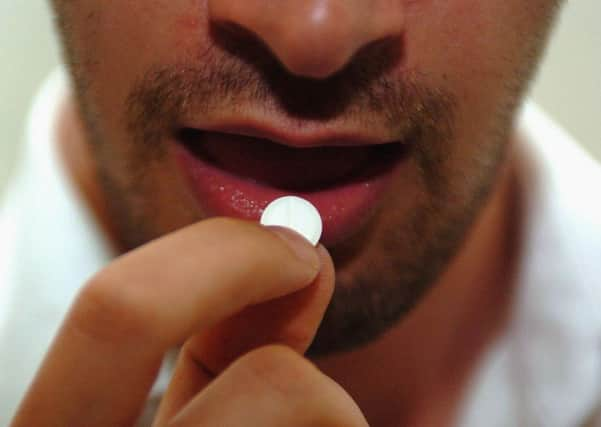How aspirin could help slow growth of cancer


Experiments on mice found combining the two medications substantially slowed the development of bowel and skin tumours compared to immunotherapy alone.
Aspirin blocks a chemical called PGE2 (prostaglandin E2) which helps cancer cells thrive, and may explain why some immunotherapy treatments have not been as effective as expected.
Advertisement
Hide AdAdvertisement
Hide AdAspirin is among a group of compounds known as COX inhibitors, which stop the production of PGE2 and help reawaken immune cells.
Professor Caetano Reis e Sousa, of the Francis Crick Institute in London, said: “Giving patients COX inhibitors like aspirin at the same time as immunotherapy could potentially make a huge difference to the benefit they get from treatment.”
His study, funded by Cancer Research UK, showed skin, breast and bowel cancer cells often produce large amounts of PGE2, a hormone-like substance that dampens down the immune system’s normal response to attack faulty cells, which helps cancer to hide.
The study, published in Cell, found immunotherapy drug anti-PD-1 was much more effective at treating bowel and melanoma cancers in lab rodents when they were also given aspirin or other COX inhibitors.
Prof Reis e Sousa said: “We have added to the growing evidence some cancers produce PGE2 as a way of escaping the immune system. If you can take away cancer cells’ ability to make PGE2, you effectively lift this protective barrier and unleash the full power of the immune system.
“It is still early work but this could help make cancer immunotherapy even more effective, delivering life-changing results for patients.
“Our whole study was based on treating cancer, but there is much research on how aspirin may prevent cancer and what we have found raises the possibility that one of its mechanisms is removing the veil in which cancer cells wrap themselves.
“The next step would be to carry out a clinical trial on cancer patients either given immunotherapy alone or with aspirin as well. We could get this going quickly because the drugs are already out there. The bottleneck is that while aspirin is very cheap, immunotherapy drugs such as anti-PD-1, which we used in this study, are very expensive.
Advertisement
Hide AdAdvertisement
Hide Ad“We cannot afford them for a clinical trial so we need to get a pharmacological company that would be willing to foot the bill. If we can attract that interest, then we could be able to see if this works in humans within a year or two.”
Cancer Research UK’s chief clinician, Professor Peter Johnson, said: “PGE2 acts on many different cells in our body, and this study suggests one of these actions is to tell our immune system to ignore cancer cells. Once you stop the cancer cells from producing it, the immune system switches back to ‘kill mode’ and attacks the tumour.”
He added: “It is an exciting finding that could offer a simple way to dramatically improve the response to treatment in a range of cancers.”